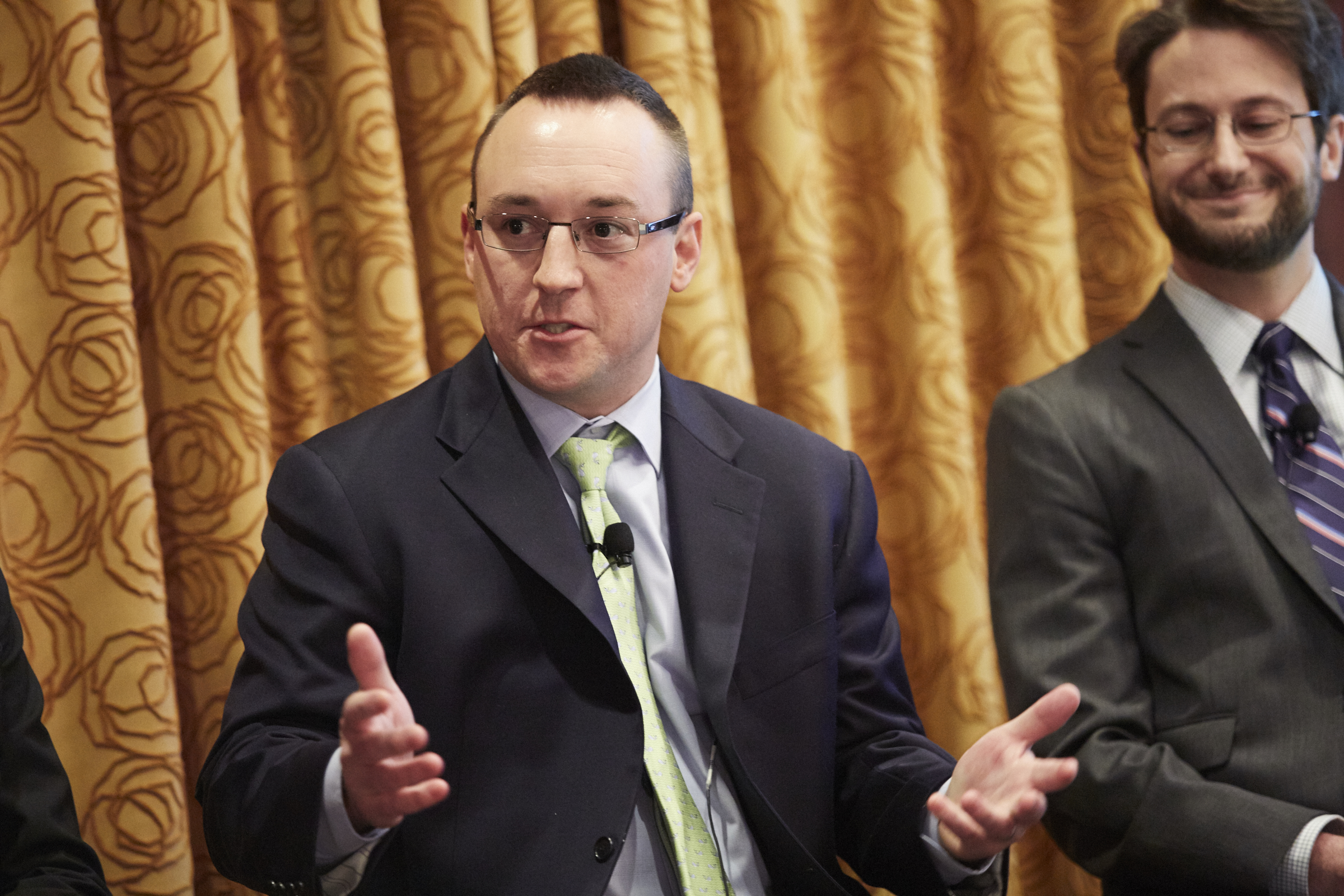 UPS Group Trust Director Greg Spick earned the Next Generation Award at the 2016 Industry Innovation Awards.
UPS Group Trust Director Greg Spick earned the Next Generation Award at the 2016 Industry Innovation Awards.
Spick was chosen out of five rising-star finalists following a lightning round of questions at CIO’s Influential Investors Forum on December 12. Nearly 100 asset owners attending the forum voted on their favorite, with the winner announced that night at the Industry Innovation Awards.
Other finalists included Michael Ashmore (Ontario Municipal Employees Retirement System), Arthur Guimaraes (University of California Board of Regents), Elizabeth Jourdan (Mercy), and Ari Paul (University of Chicago).
Each Next Generation finalist answered four questions on topics ranging from investment philosophy to asset manager culture. Spick’s answers addressed disintermediation, Donald Trump’s election, compensation, and the Canadian Model.
“We rely on the expertise of outside managers,” Spick said, discussing UPS’s approach to managing asset in-house and out. “But we also seek to apply an internal expertise [in] portfolio construction.”
Funds that lack the proper structures for governance and compensation structures, or don’t have cultures that allow for in-house asset management, may be better served using third-party managers, he added.
As a father of two young children, Spick also said he “is pulling” for the success of the Trump administration for the sake of all Americans and future generations. However, Spick—the owner of a “Make Pensions Great Again” hat—still recommended caution for investors.
“We’re on a 40-year rally of both equities and bonds—maybe the daily correlation was off, but generally, both have rallied,” he said. “When I look at the next 10, 15, 20 years, it gives me a lot of pause to think how things will behave in a Trump environment.”
If inflation returns during Trump’s administration, Spick said it may increase bond yields and decrease equity multiples. “In an inflationary environment, unless equity earnings growth is sufficient to offset the potential change in equity multiples, it’s possible both stocks and bonds could experience negative returns, similar to what happened in the 1970s,” he said. “After the initial shock, the pressures the industry has faced regarding lowering expected return on assets should subside and asset owners should be better able to generate forward returns in-line with current actuarial assumptions.”
On the Canadian Model, Spick said he admired the private markets aspect of the model because it is essentially building businesses. “It’s a similar approach that we’ve tried to adopt at UPS, because in this world of low returns, you’ve got to think outside of the box to get the type of returns that make sense,” he said.
However, Spick added that implementation within the US would require changes to governance and compensation practices.
“Whether you hire talent on the outside,[through] third party managers, or bring it in-house, either way costs money,” he explained. “It’s about making politicians, the press, and the media understand that these returns are more expensive, and at the end of the day there can be a substantial fee savings.”
Related: Announcing Next Generation, Consulting Innovation Award Finalists
